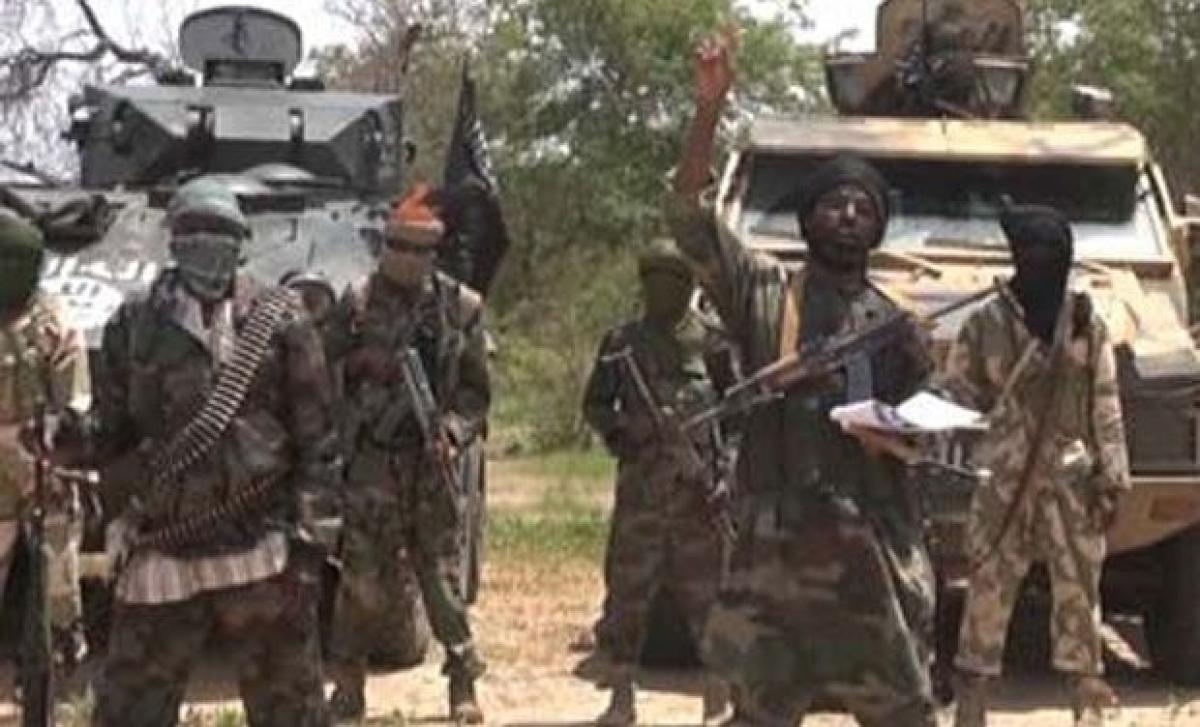Live
- Chanchalguda Jail Officials Say They Haven't Received Bail Papers Yet, Allu Arjun May Stay in Jail Tonight
- BJP leaders present evidence of illegal voters in Delhi, urge EC for swift action
- Exams will not be cancelled: BPSC chairman
- Nagesh Trophy: Karnataka, T.N win in Group A; Bihar, Rajasthan triumph in Group B
- YS Jagan condemns the arrest of Allu Arjun
- Economic and digital corridors to maritime connectivity, India and Italy building vision for future, says Italian Ambassador
- SMAT 2024: Patidar's heroics guide Madhya Pradesh to final after 13 years
- CCPA issues notices to 17 entities for violating direct selling rules
- Mamata expresses satisfaction over speedy conviction in minor girl rape-murder case
- Transparent Survey Process for Indiramma Housing Scheme Directed by District Collector
Just In

x
Highlights
A west African regional force set up to fight Boko Haram will need \"local intelligence\" to root out Islamic insurgents forced on the run by national army offensives, security experts say.
A west African regional force set up to fight Boko Haram will need "local intelligence" to root out Islamic insurgents forced on the run by national army offensives, security experts say.
"With Boko Haram reverting to acts of terrorism and hit-and-run armed raids... Nigeria and her allies will need to secure a reliable and extensive local intelligence network," said Ryan Cummings of security firm Red24.
Nigeria's neighbours Chad, Cameroon and Niger, which have all suffered attacks by Boko Haram, launched a regional force earlier this year to end a conflict that has claimed more than 15,000 lives since 2009.
But the Joint Multinational Intervention Force (MNJTF), which also includes Benin and is expected to number some 8,700 troops and police, has yet to go into action.
.jpg)
Meanwhile, national armies have succeeded in scattering Boko Haram militants to remote, inaccessible areas.
Many of the insurgents are hiding out in Lake Chad, a shallow, marshy water body dotted with hundreds of islets, and in Nigeria's Sambisa Forest near the border with Cameroon.
The Islamists once controlled large swathes of territory and key towns such as Gwoza and Baga in northeastern Nigeria where they proclaimed an Islamic caliphate before pledging allegiance to the Islamic State group.
Now in disarray, they have begun conducting suicide missions into cities and towns, often using very young girls who detonate themselves in crowded areas.
Residents of Maroua, a market town in Cameroon's Extreme North region, were spared from Boko Haram violence until female teenage suicide bombers killed 33 people there in July.
"While Nigeria and her allies have proven that the use of conventional warfare was effective in dislodging Boko Haram from areas they had captured, such tactics may be problematic in countering... asymmetric warfare," Cummings said.
Benjamin Auge, a researcher associated with the French Institute of International Relations (IFRI), said the force's "main challenge" would be to gather intelligence and use it effectively on the ground.
Citizens of all the countries involved are encouraged to help the fight by reporting any suspicious activity.
But experts warn that the Nigerian army has lost the trust of local people in Boko Haram strongholds in the northeast because of actions committed by soldiers deployed against the jihadists.
The Islamists have infiltrated this poor, Muslim-majority region where many people belong to the same ethnic group as the insurgents.
In Chad, which is playing a key role in the fight against Boko Haram, two suicide attacks have claimed around 50 lives in less than a month.
Unexplained delay
The keenly-awaited MNJTF has yet to begin operations since its supposed launch on July 30, hampered somewhat by discord between English-speaking Nigeria and its French-speaking neighbours.
The joint force was agreed in May 2014 in the wake of the kidnapping of more than 200 Nigerian schoolgirls that shocked the world.
President Muhammadu Buhari, who took office in late May after winning election on pledges of defeating Boko Haram, has held many face-to-face meeting with his regional counterparts.
Little has filtered out about the delay in operations.
But some Chadian officers, requesting anonymity, say the deployment will be a matter of reinforcing contingents already on the ground.
Chad's army launched its own offensive in the Lake Chad area in mid-July.
The breakdown by country of the multi-national force has not been announced apart from Benin's pledged contribution of 800 men.
What is known however is that the force, headquartered in the Chadian capital N'Djamena, will be led by Nigerian General Iliya Abbah, a northerner, and that it will be divided into "sectors".
Cummings warns that the force's remit was still "open to fierce debate".
The five countries have yet to "determine in which areas of Nigeria and neighbouring countries the multinational force will be allowed to operate in," he said.
The delay may also be explained by funding problems for a force almost entirely financed by its members.
The United States has pledged $5.0 million (4.5 million euros) to MNJTF, while France is providing technical assistance.

Next Story
More Stories
ADVERTISEMENT
© 2024 Hyderabad Media House Limited/The Hans India. All rights reserved. Powered by hocalwire.com







